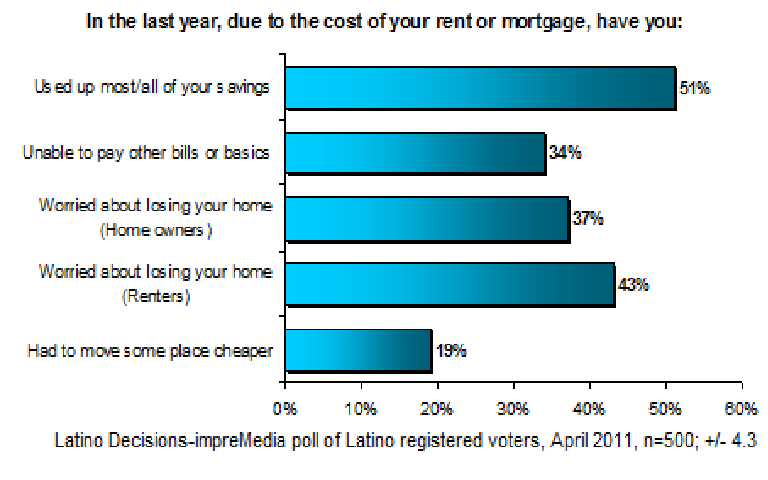By Gabriel Sanchez
President Obama is set to give a speech focused on his plans for job growth before a Joint Session of Congress in primetime Thursday night. Political pundits speculate that the President will outline a jobs plan likely to include a call for more infrastructure spending along with an extension of the payroll tax cuts, unemployment benefits and tax incentives for businesses to pick up hiring. This speech will follow a disappointing report from the Department of Labor which indicated that the unemployment rate of 9.1% remained unchanged in August. To put the state of the economy in perspective, this same report found that employers added no new jobs for the first time since World War II. President Obama will have to explain to the public how his jobs proposal will make things better, especially since his own administration revealed a rather bleak outlook for jobs growth next year, saying the unemployment rate is expected to remain above 9 percent
Among the many sub-groups of Americans who will bypass the kickoff of the NFL season to hear the President’s plan will be the Latino electorate, a population that has been hit particularly hard by the economic recession. Hispanic unemployment in August remained unchanged at 11.3 percent, continuing a trend of a disproportionately high number of Latinos being out of work – the monthly Hispanic unemployment rate has averaged 11.6 percent for the past year according to data from the Bureau of Labor Statistics. These trends in employment unfortunately only symbolize the economic hardships felt by the Latino population over the past several years.
For example, Latino families accounted for the largest decline in wealth of any ethnic and racial group in the country during the recession, according to a study published by the Pew Foundation. The Pew study reported that the median wealth of Hispanic households fell by 66 percent from 2005 to 2009. By contrast, the median wealth of whites fell by just 16 percent over the same period. Median wealth of whites is now 18 times that of Hispanic households, double the already vast disparities in wealth between these two populations in the decades before the recent global recession.
Although the causes for Latinos disproportionate sensitivity to the economic recession are many, the collapse of the housing market is clearly among the most significant. The family home was the largest source of wealth for most Latino households, so the housing market collapse wiped out the vast majority of Latinos’ median net worth. As reported here earlier, this trend was compounded by the fact that Hispanics tend to live in areas that were hit hardest by the recession, like Florida, Arizona and California. The table below is based on findings from our impreMedia/Latino Decisions April tracking poll and provides an overview of how the Latino electorate is being impacted by the economy. For example, 51% of Latino voters used up most or all of their savings to pay their rising mortgages or rent, and 34% were having trouble paying other bills and necessities due to their mortgage or rent. These numbers are striking when we consider that the poll was taken of likely voters who are more economically and socially integrated into US society.
This brief review of the economic status of the Latino population definitely suggests that the President’s performance on Thursday will be critical to his ability to inject some much needed life into his prospects for capturing a similar ratio of the Latino vote in 2012 as he did in 2008. The Latino population appears to be primed for a job focused effort from the administration, as the economy outpaced immigration as the most important issue to Latino voters for the first time within our latest tracking poll. More specifically, 43% of the Latino electorate believes that “Fixing the Economy” and “Creating Jobs” is the most important issue facing the Latino community, up from 35% in June and 33% in April.
Gabriel R. Sanchez is an Associate Professor of Political Science at the University of New Mexico and Research Director for Latino Decisions.



